by Texas Homesteader ~
Any gardener knows that compost is ‘Black Gold‘. But for those just starting out, there’s often some hesitation.
You’re rotting things in a pile, doesn’t that stink?
The answer is: No!
Well actually, yes and no – the result depends on you. Don’t worry, it’s easy to make compost that smells only like rich planting soil!
(Note: Some links in this post will take you to other related articles for further information. But links preceded with * are affiliate links. If you click and buy something I could receive a tiny commission.)
Compost Helps Keep Garden Soil Healthy
Compost is invaluable to your garden, helping your plants grow strong & healthy. It’s basically creating an all-natural fertilizer and soil amendment.
And Compost is easy to make yourself. Making your own compost is eco-friendly, good for your garden and good for your wallet.
I plant a veggie garden every year and of course that black gold is incorporated into each planting hole. It gives that seed or seedling the best opportunity for healthy growth.
But there are some tricks to making a ready-to-use compost for your garden.
Note: You can see all our composting articles by clicking the button below:
Composting Is Eco-Friendly
I began composting decades ago because I became incredibly intrigued that things normally thrown away could actually help my garden grow better. You know, apple cores, potato peelings, coffee grounds.
The environmental side of me was excited that ‘Trash‘ can actually be helpful.
Back in those days I just made an open-top enclosure for my composting using a leftover piece of welded wire fencing. I researched what should and should not be placed in a compost pile and then started piling it in.
I learned to add torn up cardboard, handfuls of dried leaves and such for my ‘browns’ and fresh grass clippings, apple cores & kitchen scraps for my ‘greens’.
Left to its own devices all those things will eventually break down into compost all by itself.
But composting time is significantly sped up with proper green/brown material balance, moisture & frequent turning.
Compost Needs To Be Turned Regularly
That simple open-top wire compost area did give me a place to make compost back when we lived in the city. But life was busy and I was not very good at turning my compost pile regularly. So it was definitely a slow-go method of making compost.
Plus several years ago when we moved out into the country I worried about animals or vermin being attracted to my open-top compost pile.
So I bought this enclosed *tumbling composter and I never looked back.
The tumbling action of the composter speeds up the process and the enclosed barrel also helps assure critters can’t get to it & any aromas are better contained.
I’ve written before about Easy composting for a healthy garden. So if you’re wondering what you should and shouldn’t add to your compost be sure to check it out.
(Spoiler Alert: There’s not much that you can’t add to compost!)
But remember it’s not because compost is contained inside a tumbler that keeps your compost from smelling bad. It’s more about balance.
Why Does My Compost Smell Bad?
If your compost starts to smell it just means something is out of balance.
Maybe you’re not turning it frequently enough to keep the moisture properly distributed. More than likely it’s too wet or has too many ‘greens’ in the mix.
To re-balance your greens you can add browns such as shredded paper or cardboard and give it all a stir until the balance is restored and any offending odor is removed.
You’re looking for a nice, earthy smell, not a rotting tomato smell! LOL
So don’t be afraid to take that leap. Your compost heap, properly balanced, won’t smell like rotting produce at all.
Instead your compost will smell delightfully of deep, rich planting soil.
And your garden plants will thank you many times over!
~TxH~
Other Compost Articles
- Easy Composting Rules For A Healthy Garden
- Don’t Worry, Compost Doesn’t Stink
- Easy Composting Guide
- Easily Adding Cardboard To Your Compost
- Using Manure In Your Compost
- Compostable Eating Utensils
- Compostable Toothbrush
- *Where To Buy A Compost Tumbler
See All Our Compost Articles
My Favorite Garden Hacks
Raised Bed Shopping
- *Where To Find A Higher-Quality Durable Raised Bed!
Garden Planning
Seed Planting
- Planting Seeds In A Milk Jug Mini-Greenhouse
- Using A Clear Tote As An Indoor Greenhouse
- Repurposed Cardboard Seed-Starting Pots
Soil Health
Garden Styles
- How & Why To Use Raised Beds In Your Garden
- Planning & Planting A Fall Garden To Extend The Harvest
- Where I Found The BEST Raised Bed!
- Planting A Blueberry Bush In a Small Rustic Tub
- Creating A Vibrant Pollinator Garden
Garden Plants/Harvest
- Stevia – Growing Your Own Sweetener!
- My Simple, Zero-Waste Herb Drying Setup
- The Lazy Gardener’s Plant List – Plant Once, Eat For Years!
- How To Tell When Watermelon Is Ripe
- Tips To Plant & Grow The Best Tomatoes
Water/Irrigation/Drought
- 3 Rainwater Collection Systems We Use
- Cheap (or FREE) Wood Mulch For The Garden
- Using Vining Plants For Living Mulch
- Surprising Use For Empty Clay Pots In The Garden
Garden Tips
- How To Save Outdoor Plants Even During A Hard Freeze
- Growing A Sustainable Garden: Eco-Friendly Practices
- Tricking Birds AWAY From Your Strawberry Plants
- What To Leave In Your Garden To Help Wildlife Survive Winter
MORE Gardening Posts
C’mon by & sit a spell! Come hang out at our Facebook Page. It’s like sitting in a front porch rocker with a glass of cold iced tea. Lots of good folks sharing! You can also follow along on Pinterest, on Twitter or on Instagram.
If you’d like to receive an email each time a new blog post goes live it’s EASY to
subscribe to our blog!

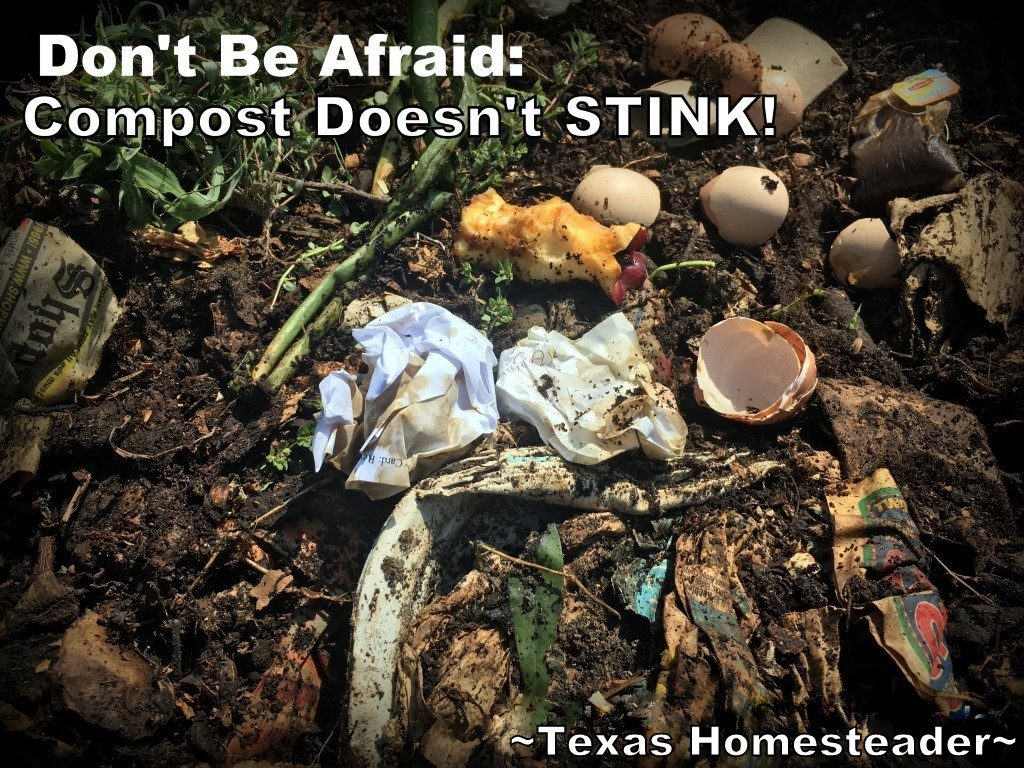
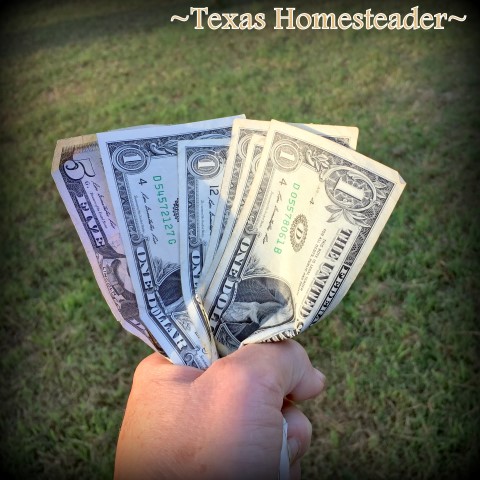

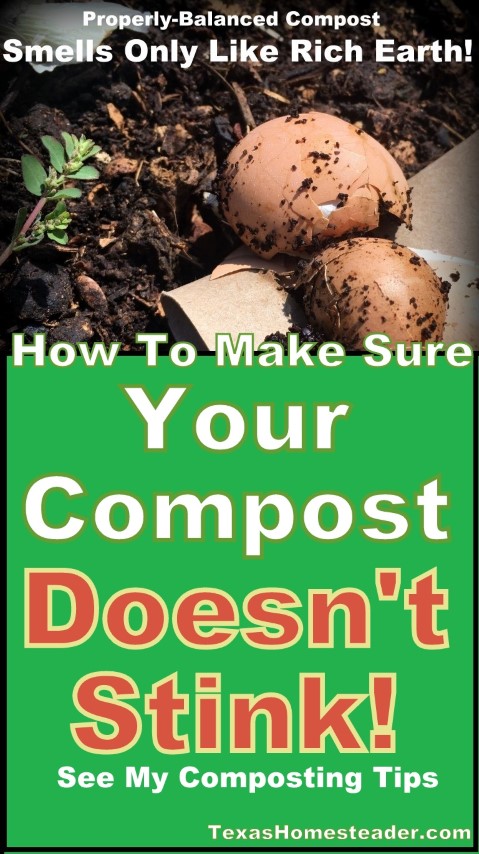
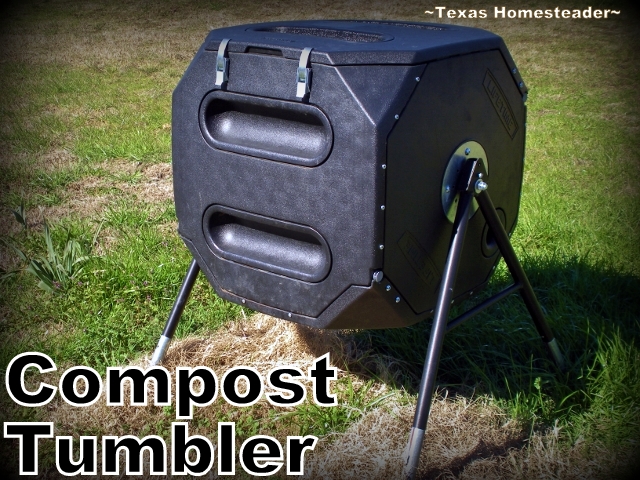
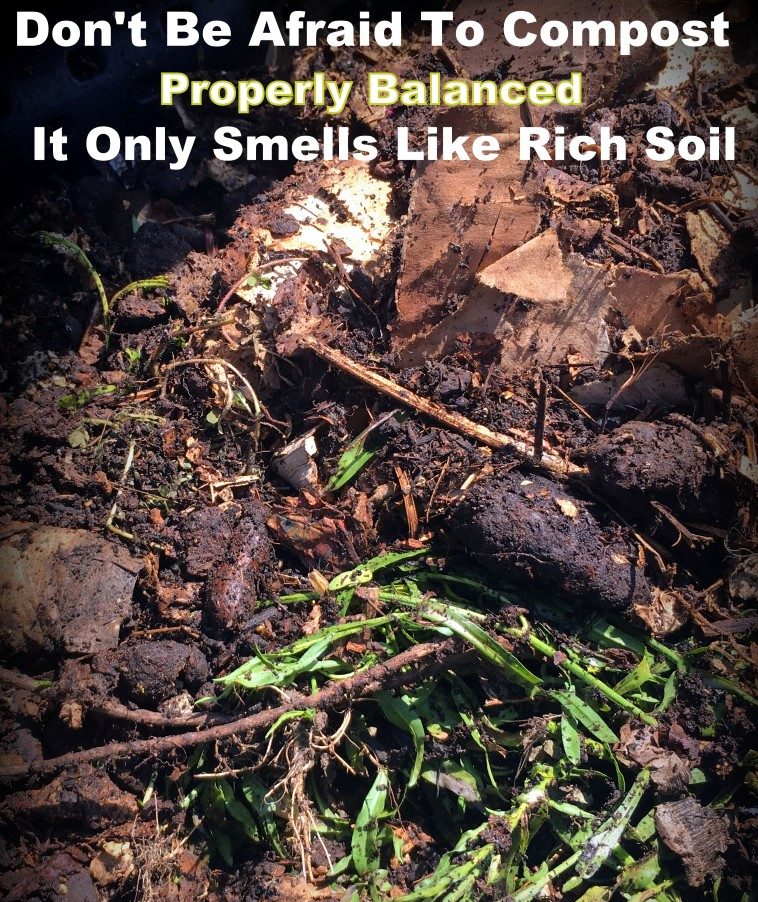
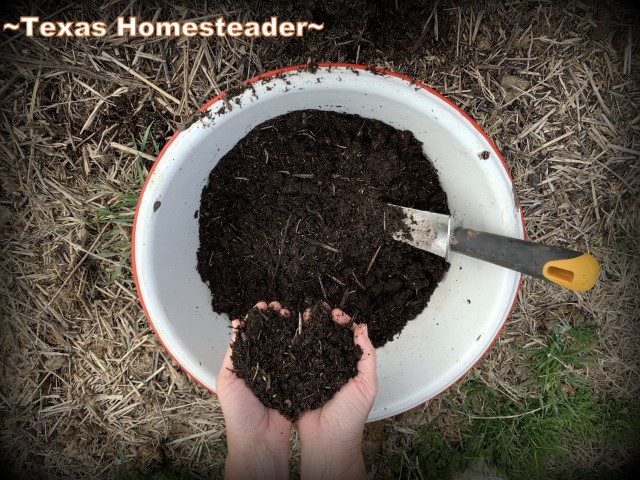
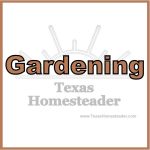
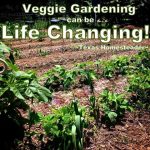

I use to go into the schools and start worm boxes. The students were taught what could and couldn’t go in them and I had the pleasure of knowing I was teaching a new generation how to be invironmently sound (at least in part). I used red worms, what do you use?
I had a composter like yours but had to give it up. Instead on invisible microbes I had moving, buzzing material with horsefly larva! I gave the com poster to my neighbor. I crush eggshells and put vegetable waste directly in my garden, or sometimes in our pasture.
We have had our tumbler for some years now. In fact I just put scraps into mine just this morning; except for my egg shells that is as them don’t decompose very well so I wash mine out, let dry really, really well and then put in blender to pulverize them to bits; put in bags or empty coffee containers and save them when I plant my veggies, trees, etc. I just put about 1/4 cup crushed egg shells into the hole alone with a bit of bone meal, Epsom salts, water and then plant whatever I’m planting at the moment. Roses especially like this mixture; including all other plants, trees, & shrubs.
My potato and apple peelings I also put in blender just to kinda break up in small pieces so that they break down quicker.
Banana peelings, I especially save in bags and put in freezer and if and when I plant roses, I will throw in a banana peel. Roses do love the peelings of the banana.
well washed and dried egg shells are also good to give to the chickens as well as putting in bird feeders but do make sure that the shells are washed out really well first.
I put egg shells from eggs I use for baking into the compost, but you’re right about chickens and egg shells. So for our hens I use egg shells from boiled eggs (which I make about weekly here anyway), let them dry out, crush them and offer them freechoice to the chickens. It’s said the calcium in the egg shells helps add calcium to the hen’s diet to assure they have nice hard shells on the eggs they lay. win/win! ~TxH~